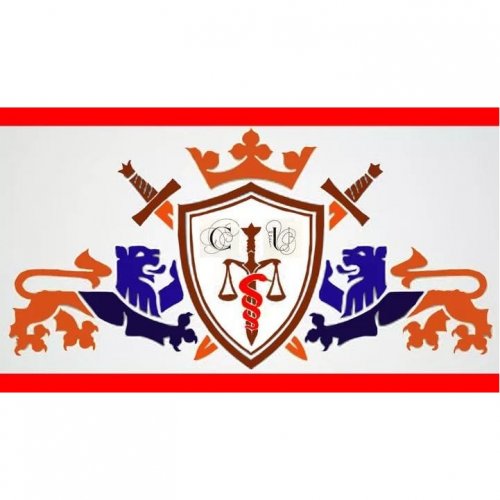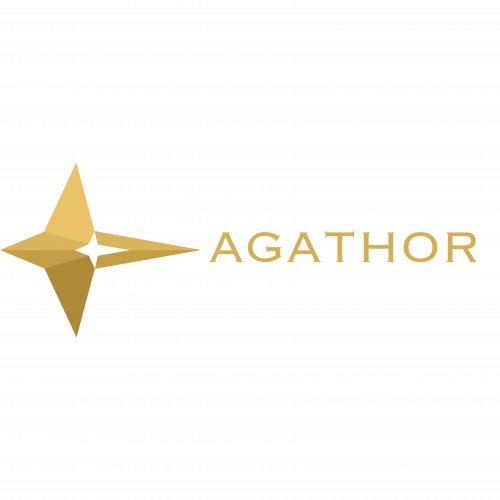Best Aviation Lawyers in Ankara
Share your needs with us, get contacted by law firms.
Free. Takes 2 min.
List of the best lawyers in Ankara, Turkey
About Aviation Law in Ankara, Turkey
Ankara, as the capital of Turkey, plays a significant role in the country's aviation sector. It is home to Esenboğa Airport, one of Turkey’s largest and busiest airports, contributing to a dynamic aviation environment. Aviation law in Ankara is a specialized field that encompasses various legal issues related to air travel, aircraft operation, airport management, and air safety regulations. The legal framework is designed to regulate and ensure safety, efficiency, and reliability in air transport services. The Directorate General of Civil Aviation (DGCA) is the key governmental body overseeing aviation activities in Turkey, ensuring compliance with national and international standards.
Why You May Need a Lawyer
There are several situations where individuals or companies involved in the aviation sector in Ankara may require legal assistance:
- Regulatory Compliance: Ensuring compliance with aviation laws and regulations, both locally and internationally.
- Contractual Agreements: Drafting, negotiating, or reviewing contracts related to aircraft purchase, lease, or maintenance.
- Dispute Resolution: Handling disputes related to commercial activities, passenger claims, or accidents involving airlines.
- Insurance Claims: Managing insurance claims and coverage issues for aircraft and aviation operations.
- Safety and Accident Investigation: Assistance in case of aviation accidents or incidents, ensuring proper investigation and compliance with procedures.
Local Laws Overview
Aviation law in Ankara is governed by a combination of national legislation and international conventions. Key aspects include:
- National Legislation: Turkish Civil Aviation Law, which covers aspects related to air navigation, airport operations, and aircraft registration.
- International Conventions: Turkey is a signatory to conventions such as the Chicago Convention and the Warsaw Convention, which standardize aviation regulations globally.
- Environmental Regulations: Laws aimed at minimizing the environmental impact of aviation activities, focusing on noise and emissions control.
- Consumer Protection: Regulations to safeguard passengers' rights and ensure fair treatment by airlines.
Frequently Asked Questions
What is the role of the Directorate General of Civil Aviation (DGCA) in Turkey?
The DGCA is responsible for regulating and supervising civil aviation activities in Turkey. This includes ensuring compliance with safety standards, managing air traffic control, and overseeing airports and airlines.
How can I register an aircraft in Ankara?
To register an aircraft, you must apply to the DGCA and provide necessary documentation, including proof of ownership, airworthiness certificates, and compliance with technical standards.
What legal steps should be taken in case of an aviation accident?
In case of an aviation accident, it is crucial to report the incident to the relevant authorities immediately, comply with investigation procedures, and consult with a legal expert specializing in aviation law.
What are my rights as a passenger if my flight is canceled or delayed?
Passengers are entitled to certain rights such as reimbursement, rerouting, and assistance, depending on the duration and cause of the delay or cancellation, as per Turkish regulations and EU laws if applicable.
How are pilot licenses regulated in Turkey?
Pilot licensing in Turkey is regulated by the DGCA, which requires compliance with training standards, medical fitness, and successful completion of required examinations.
Can a foreign airline operate flights from Ankara?
Yes, foreign airlines can operate flights from Ankara but must obtain the necessary permissions and comply with bilateral agreements and treaties between Turkey and the airline’s home country.
What is the procedure for purchasing an aircraft in Turkey?
The purchase of an aircraft involves negotiating a sales agreement, ensuring compliance with safety and registration requirements, and often requires the expertise of legal and financial advisers.
Are drones subject to aviation laws in Turkey?
Yes, drones are subject to specific regulations in Turkey, including registration requirements for certain categories and restrictions on operation near airports or populated areas.
What are the environmental obligations for airlines operating in Ankara?
Airlines must adhere to environmental regulations regarding noise pollution, emissions control, and must also comply with any additional local policies implemented by airport authorities.
How can I resolve a dispute with an airline over lost luggage?
Disputes over lost luggage can often be resolved through the airline's customer service channels. If necessary, legal recourse is available under consumer protection laws that may involve mediation or court proceedings.
Additional Resources
Here are some resources and organizations that can be helpful:
- Directorate General of Civil Aviation (DGCA): The primary regulatory body for civil aviation in Turkey.
- Turkish Airlines: For information on consumer rights and airline-specific policies.
- Ankara Bar Association: Offers referrals to qualified aviation lawyers in Ankara.
- International Air Transport Association (IATA): Provides global industry information and standards.
Next Steps
If you need legal assistance in the field of aviation, consider the following steps:
- Identify the specific legal issue or requirement you have.
- Research and contact a specialized aviation lawyer or law firm in Ankara.
- Prepare all necessary documentation and information related to your case or query.
- Schedule a consultation to discuss your case in detail and explore your legal options.
- Follow the legal advice provided to ensure compliance and protect your interests in the aviation sector.
Lawzana helps you find the best lawyers and law firms in Ankara through a curated and pre-screened list of qualified legal professionals. Our platform offers rankings and detailed profiles of attorneys and law firms, allowing you to compare based on practice areas, including Aviation, experience, and client feedback.
Each profile includes a description of the firm's areas of practice, client reviews, team members and partners, year of establishment, spoken languages, office locations, contact information, social media presence, and any published articles or resources. Most firms on our platform speak English and are experienced in both local and international legal matters.
Get a quote from top-rated law firms in Ankara, Turkey — quickly, securely, and without unnecessary hassle.
Disclaimer:
The information provided on this page is for general informational purposes only and does not constitute legal advice. While we strive to ensure the accuracy and relevance of the content, legal information may change over time, and interpretations of the law can vary. You should always consult with a qualified legal professional for advice specific to your situation.
We disclaim all liability for actions taken or not taken based on the content of this page. If you believe any information is incorrect or outdated, please contact us, and we will review and update it where appropriate.











